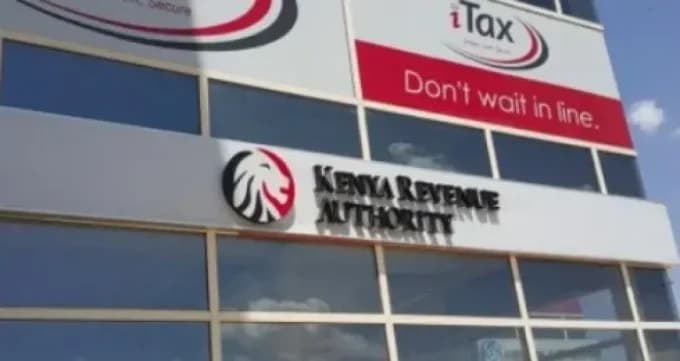We're loading the full news article for you. This includes the article content, images, author information, and related articles.
New draft regulations aim to align Kenya with a global framework targeting large international firms, a move intended to curb profit shifting and bolster national revenue. The public has until December 2, 2025, to submit views.

The Kenya Revenue Authority (KRA) has formally invited public and stakeholder input on new draft regulations designed to implement a 15% minimum tax on multinational corporations operating within the country. In a public notice issued on Monday, November 3, 2025, on behalf of the National Treasury, the KRA released the Draft Income Tax (Minimum Top-Up Tax) Regulations, 2025. This initiative is a significant step in aligning Kenya’s tax laws with the global standards developed by the Organisation for Economic Co-operation and Development (OECD) to combat tax avoidance.
The proposed rules are part of the OECD/G20's Inclusive Framework on Base Erosion and Profit Shifting (BEPS), a global initiative Kenya joined in 2017 to tackle tax avoidance strategies that exploit gaps in international tax rules to shift profits to low or no-tax jurisdictions. Specifically, the regulations will domesticate 'Pillar Two' of the framework, which introduces a global minimum corporate tax rate of 15%. This is designed to ensure large multinational enterprises (MNEs) pay a fair share of tax in the jurisdictions where they operate, thereby preventing a “race to the bottom” where countries compete by offering lower tax rates.
The Minimum Top-Up Tax (MTT) will apply to MNEs with a consolidated annual turnover of at least €750 million (approximately KSh 104 billion) in at least two of the last four accounting periods. If a qualifying multinational's effective tax rate (ETR) on profits generated in Kenya falls below the 15% threshold, the new rules will empower the KRA to apply a “top-up tax” to cover the difference. This mechanism, known as a Qualified Domestic Minimum Top-Up Tax (QDMTT), ensures that Kenya collects the additional revenue before another country can claim it under the Pillar Two framework's interlocking rules.
The framework was first introduced into Kenyan law through the Tax Laws (Amendment) Act, 2024, and became effective on January 1, 2025. The current draft regulations are intended to provide the detailed implementation and administrative guidelines for this tax. Certain entities, such as public and non-profit organizations, pension funds, and some investment vehicles, are exempt from these rules.
The implementation of a global minimum tax carries significant implications for Kenya. Proponents argue it will level the playing field for local businesses and could substantially increase tax revenues by curbing aggressive tax planning by some of the world's largest companies. For years, studies have indicated that Kenya loses significant revenue through tax avoidance schemes employed by some multinationals.
However, there are concerns about the potential impact on foreign direct investment (FDI). Tax incentives, particularly those offered in Special Economic Zones (SEZs) and Export Processing Zones (EPZs), have been a key tool for attracting investment. The new 15% tax floor may reduce the appeal of these incentives, potentially causing MNEs to reconsider their investment strategies. Furthermore, the complexity of the new rules will place a higher compliance burden on in-scope companies and require significant administrative capacity from the KRA.
The call for public comment is a constitutional requirement in Kenya, mandated under the Statutory Instruments Act and Article 201 of the Constitution to ensure transparency in financial matters. The KRA has requested that all written feedback from individuals, companies, and professional bodies be submitted by Tuesday, December 2, 2025. The draft regulations are available on the KRA's official website.
Alongside the MTT regulations, the KRA also released the Draft Income Tax (Advance Pricing Agreement) Regulations, 2025. This second set of rules aims to reduce tax uncertainty and disputes by allowing taxpayers and the KRA to agree in advance on the pricing of cross-border transactions between related companies, a common area of tax disputes. This framework is set to take effect on January 1, 2026.
The finalization of these regulations will mark a pivotal moment in Kenya's integration into the modern international tax system, balancing the need to attract investment with the imperative to secure its tax base for national development.
Keep the conversation in one place—threads here stay linked to the story and in the forums.
Sign in to start a discussion
Start a conversation about this story and keep it linked here.
Other hot threads
E-sports and Gaming Community in Kenya
Active 9 months ago
The Role of Technology in Modern Agriculture (AgriTech)
Active 9 months ago
Popular Recreational Activities Across Counties
Active 9 months ago
Investing in Youth Sports Development Programs
Active 9 months ago